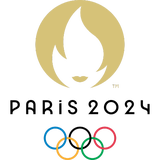
Lawyer details limits on Olympic athlete sponsorships
DOHA, Qatar (AP) — A lawyer with the Association of National Olympic Committees on Friday detailed the limits on athletes promoting their sponsors within new guidelines for the 2020 Tokyo Games.
ANOC legal commission chairman Michael Chambers told the 206-nation group members that only generic advertising is allowed.
Advertising by an athlete's personal sponsor during the July 24-Aug. 9 games "can't use Olympic symbols, the rings, your emblem, references to the Olympics," Chambers told the ANOC annual meeting.
Athletes have long wanted the easing of Olympic Charter Rule 40, which restricts use of their names and images during the games. The International Olympic Committee resisted change to protect the value of the official sponsor deals that fund sports and the games.
After a German federal agency ruled in February that Rule 40 was "too far-reaching ... abusive conduct," the IOC said national Olympic bodies could oversee new athlete agreements.
The U.S. Olympic Committee's agreement this month includes now also letting athletes thank their sponsors.
"There cannot be anything in the advertising that makes that (Olympic) connection," Chambers said, beyond the fact that the athlete featured in a commercial would be competing in Tokyo around the same time.
The two-day ANOC meeting in Qatar also addressed the charter's Rule 50 that prohibits athletes from making political statements in Olympic venues.
In recent months, there were medal podium protests at the swimming world championships and the Pan-American Games.
Swimmers from Britain and Australia drew attention to Chinese rival Sun Yang, who is involved in a doping case. Two U.S. medalists in Lima, Peru, were put on probation for one year after their protests to highlight social issues at home.
The head of the IOC Athlete Commission, Olympic gold medalist swimmer Kirsty Coventry, told ANOC delegates it was drafting guidelines so that athletes understood the rules in Tokyo.
Coventry, an IOC executive board member, said its consultations with athletes showed they did not believe the field of play was a place for protest.
She asked national Olympic officials for their help in educating athletes away from making protests.
